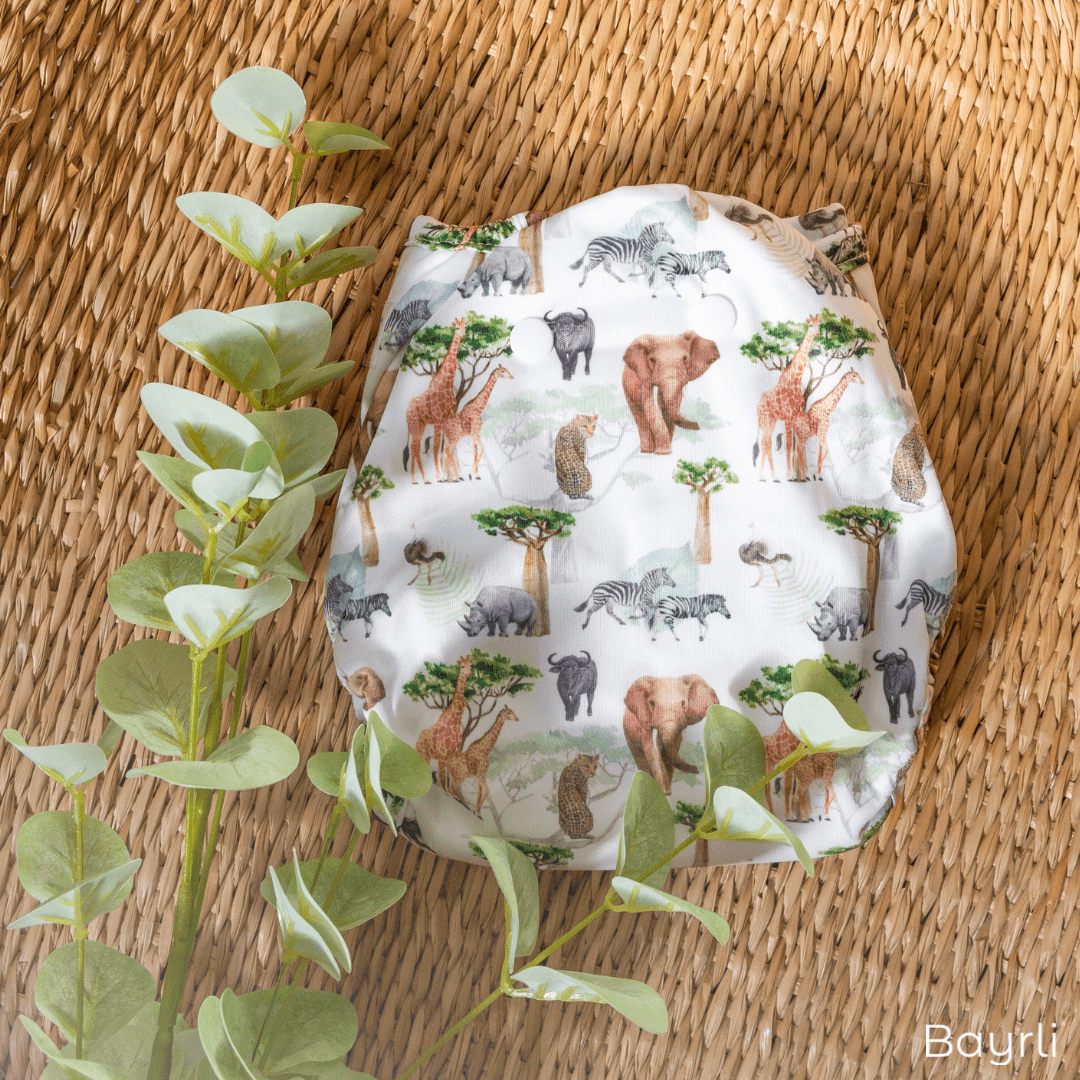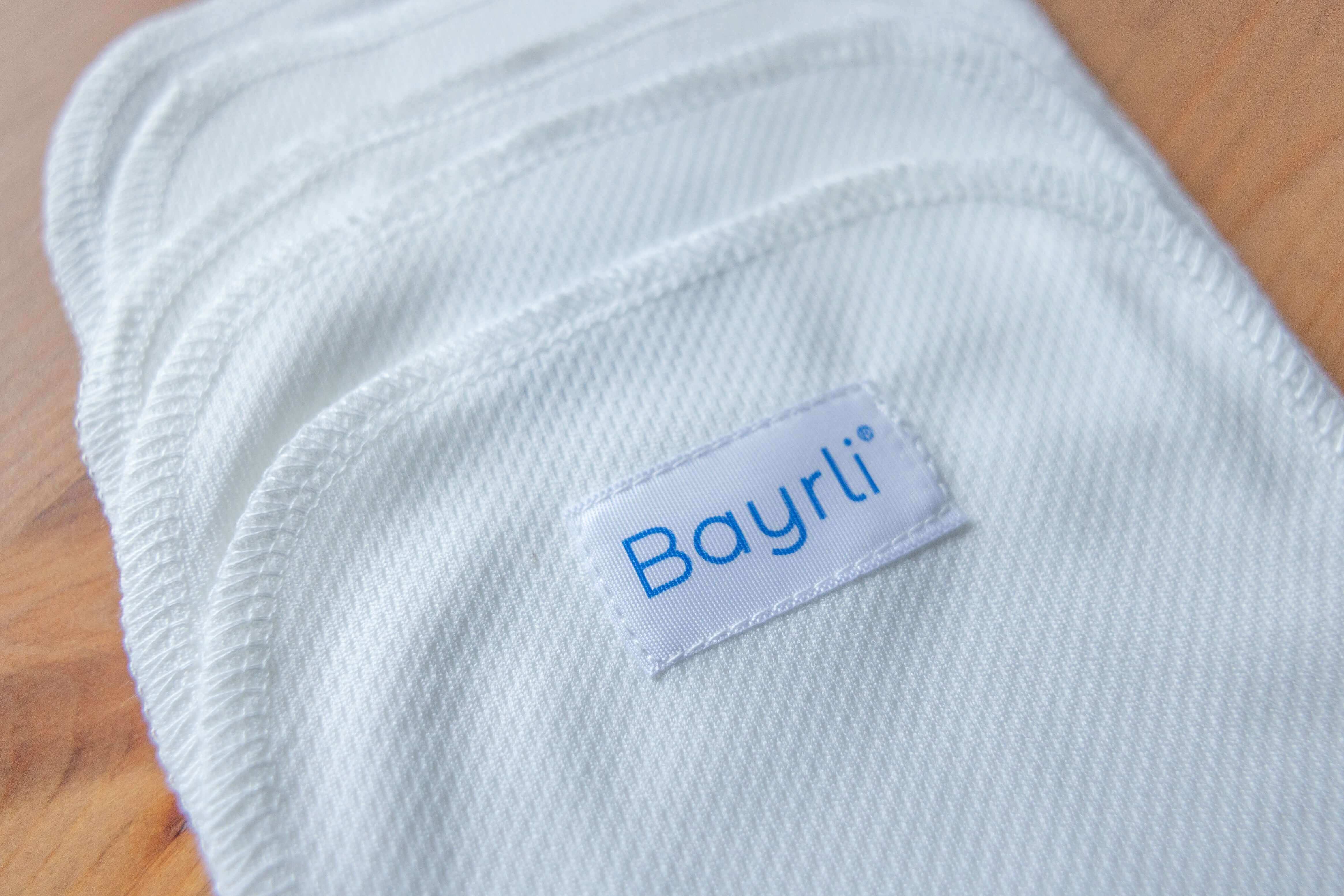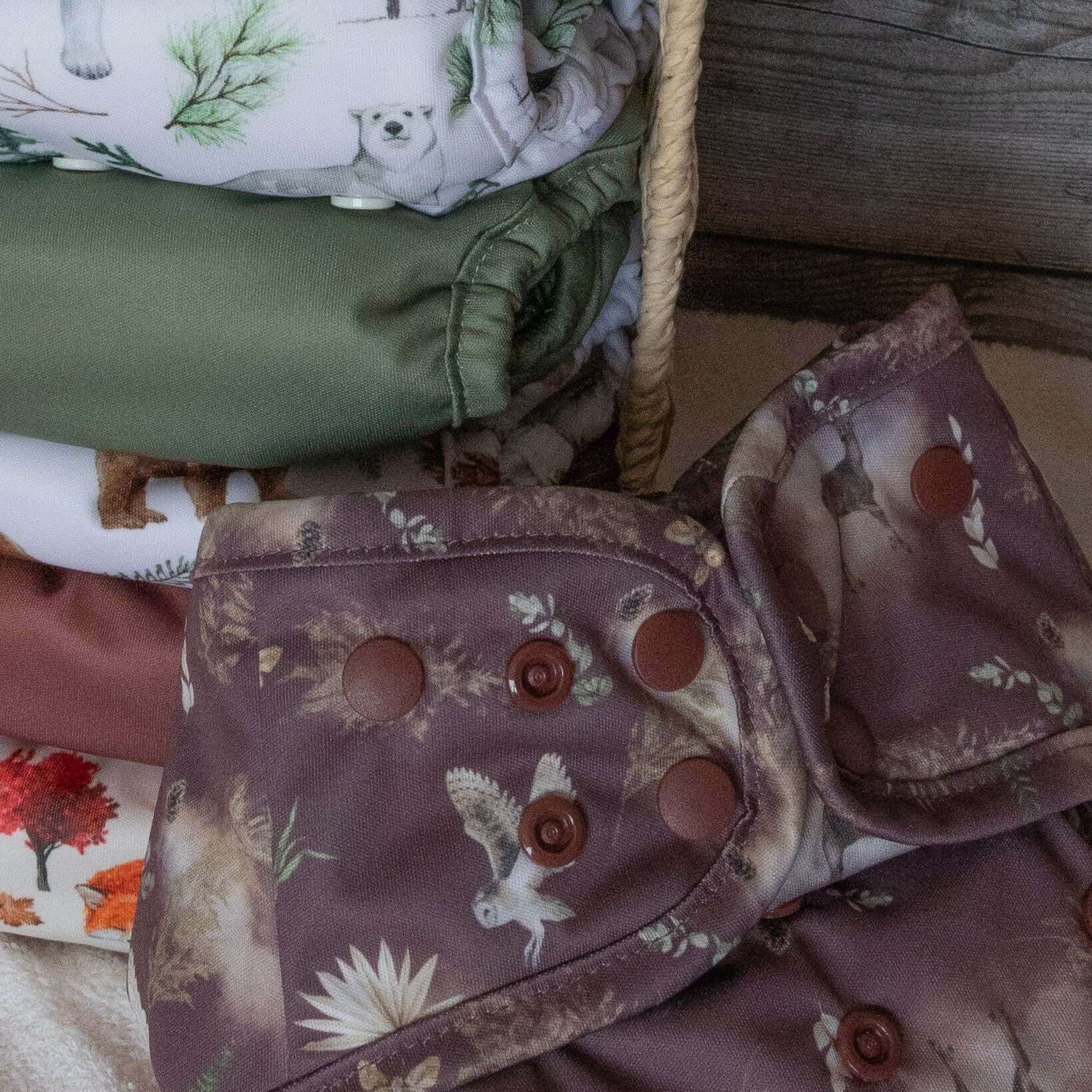
Maximizing the Lifespan of Your Cloth Diapers: Expert Tips for Long-Lasting Use
Are you looking to give your cloth diapers the longest life possible? You're in the right spot! At Bayrli, we understand the importance of sustainability and cost-effectiveness in your parenting journey. That's why we're here to spill the beans on how to keep those cloth diapers going strong for as long as possible. Let’s dive in!
Why Cloth Diapers Can't Last Forever
First things first, let's face it: nothing lasts forever, not even the sturdiest cloth diapers such as Bayrli. Over time, they face wear and tear from frequent washing and use, so just make sure you invest in a brand(s) with a strong warranty policy for peace mind. Understanding the lifecycle of your cloth diapers is key to maximizing their lifespan.
Best Washing Tips and Instructions
-
Go Easy on the Temperature: Hot water might seem like a germ-killer, but it's a fabric-killer too! Stick to warm water to keep the fibers in your diapers happy and intact.
-
Choose Your Detergent Wisely: Not all detergents are created equal. Opt for a cloth diaper-friendly option that's tough on stains but gentle on fabric.
-
Rinse, Then Wash: A quick rinse before the main wash can work wonders in removing the bulk of soiling. It’s like a pre-game warm-up for your diapers!
The Do's and Don'ts of Diaper Care
-
Do Regular Washes: Don’t let those diapers sit dirty for too long. Regular washing prevents buildup and maintains fabric integrity.
-
Don’t Overstuff Your Washer: Giving your diapers some room to move in the wash ensures they get thoroughly cleaned and rinsed.
-
Do Use the Right Amount of Detergent: More isn't always better. Follow the recommended amount for your water type to avoid residue buildup.
-
Don’t Use Fabric Softeners: They can reduce absorbency by coating the fibers. Nobody wants that!
Avoiding Hot Water and Careful Bleach Usage
-
Warm Over Hot: Always opt for warm water. Hot water can weaken fibers and elastic, leading to a shorter diaper life. And remember the impact of hard water on reusable diapers as well.
-
Bleach with Caution: If you must use bleach, do so sparingly. It can be a necessary evil for sanitizing, but it's tough on fabrics.
Why Soaking Is a No-Go
Soaking might seem like a good idea, but it can cause more harm than good. Prolonged soaking can lead to fabric breakdown and elastic damage. Instead, opt for a pre-wash cycle or a short rinse before the main event. We also have a guide on staining for you in case you have further questions on this.
FAQs
How often should I wash my cloth diapers?
Aim for every 2-3 days to prevent bacteria buildup, mold, and staining.
Can I use vinegar or baking soda in my wash?
While these can be helpful in moderation, excessive use can damage the fabric. Use sparingly!
How do I store dirty cloth diapers before washing?
Store them in a dry pail with good airflow to prevent mold and mildew - our full guide has more.
Can I dry cloth diapers in the dryer?
Yes, but use a low or wool heat setting to protect the elastic and fabric. (This should only be used for select absorbency options, nothing with TPU).
What's the best way to remove tough stains?
Sunning your diapers can be a natural and effective way to tackle stains. Just don’t overdo it!
Is it safe to use diaper creams with cloth diapers?
Yes, but opt for cloth diaper-safe creams to prevent residue buildup and repelling.
How can I tell if my diapers are worn out?
Look for signs like thinning fabric, relaxed elastics, or leaks that weren't a problem before.
Alright, you've got the lowdown on keeping your cloth diapers in tip-top shape for the long haul! Remember, a little extra care goes a long way. By following these tips, you’re not only saving your wallet but also contributing to a greener planet. With a little extra care, you can extend the lifespan of your cloth diapers and make a positive impact on the environment.


